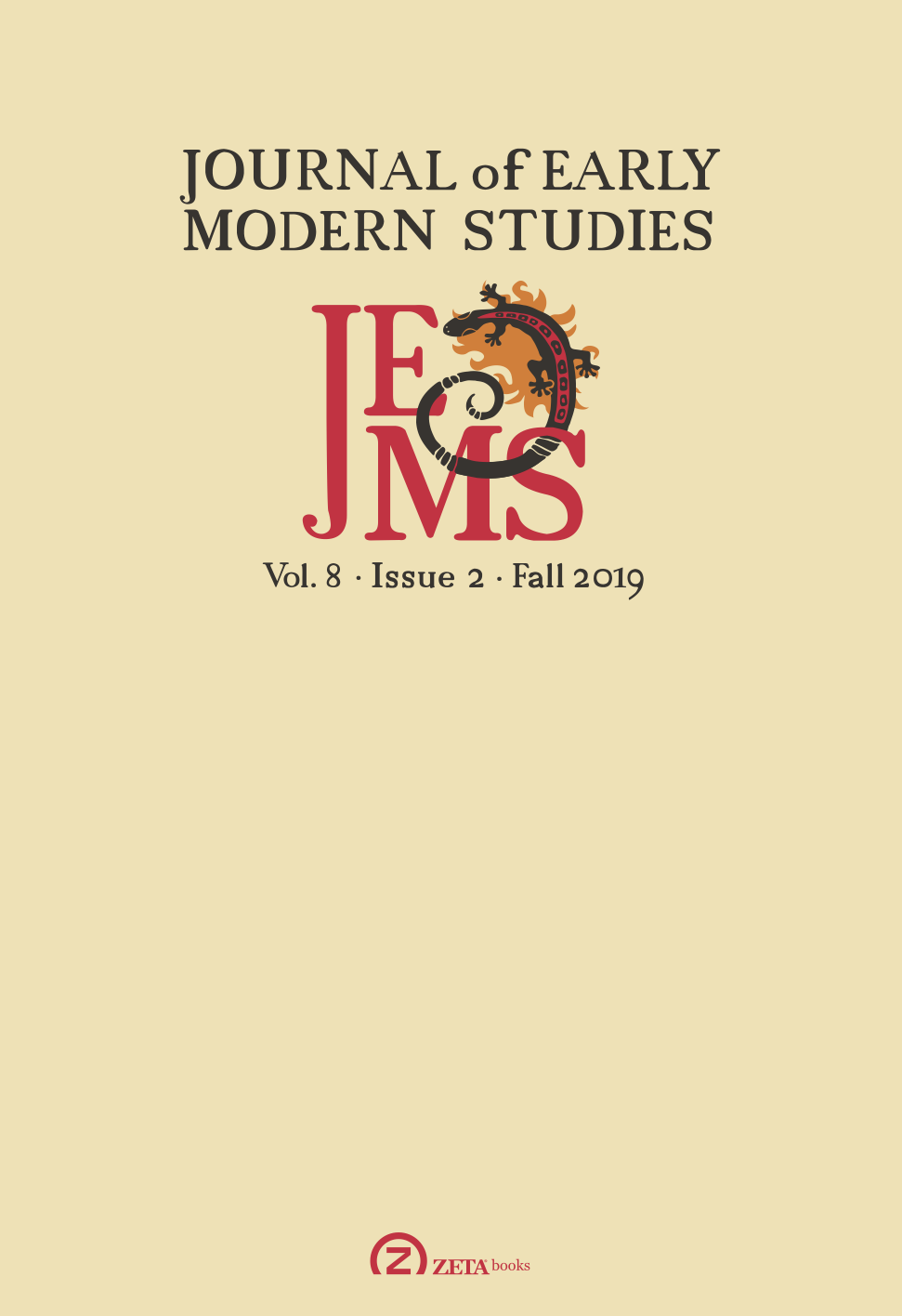Foreigners in Pre-Modernity: On Losses of Negatability and Gains of Unfamiliarity
Foreigners in Pre-Modernity: On Losses of Negatability and Gains of Unfamiliarity
Author(s): Peter StrohschneiderSubject(s): Philosophy, History of Philosophy, Early Modern Philosophy
Published by: Zeta Books
Keywords: alterity; asymmetry; asymmetric counter-concepts; culture; meaning-production; negatability; negation; otherness; unfamiliarity;
Summary/Abstract: The essay draws on the concept of ‘asymmetric counter-concepts’ as developed by Reinhart Koselleck starting with twin-formulas such as ‘the familiar and the unfamiliar’ which are generally used to establish collective designations of the self and others and which institutionalize the axiological and the epistemological. These counter-concepts can have different semantic temperatures. The focus is on the underlying meaning-production schemes which produce value-asymmetries. The essay tries to show that a process of heating up these value-asymmetries is only one side of the history of such asymmetric counter-concepts from medieval to modern times. Simultaneously a cooling down can be observed in written texts from different periods; examples include the 12th century Rolandslied and the 16th century Essais of Michel de Montaigne. Full negation eliminates uncertainties and value insecurities. But the complexities and contingencies that emerge since Early Modern times then lead to losses of negatability (Negierbarkeitsverluste), which in turn render gains in unfamiliarity. The modern experience of the foreign is indeterminate otherness instead of determined negation that characterized pre-modern alterity. Modern societies therefore need to mediate between validity and contingency under the circumstances of plurality. Interpretational demands and uncertainty about the relevant interpretive frames increase. Foreignness is then experienced as unfamiliarity. This presupposes intellectual attitudes like irritability, curiosity, and willingness to learn. The modern concept of ‘culture’ then is proposed as a comparative pattern where only unavoidable structural asymmetry remains. It explains cultural differences and the experience of foreignness through heterogeneity. Using this specifically modern pattern, there is no longer a legitimate value slope between one’s own position and its negation. The distinction is then between the familiar and the unfamiliar.
Journal: Journal of Early Modern Studies
- Issue Year: 8/2019
- Issue No: 2
- Page Range: 103-135
- Page Count: 33
- Language: English
- Content File-PDF

